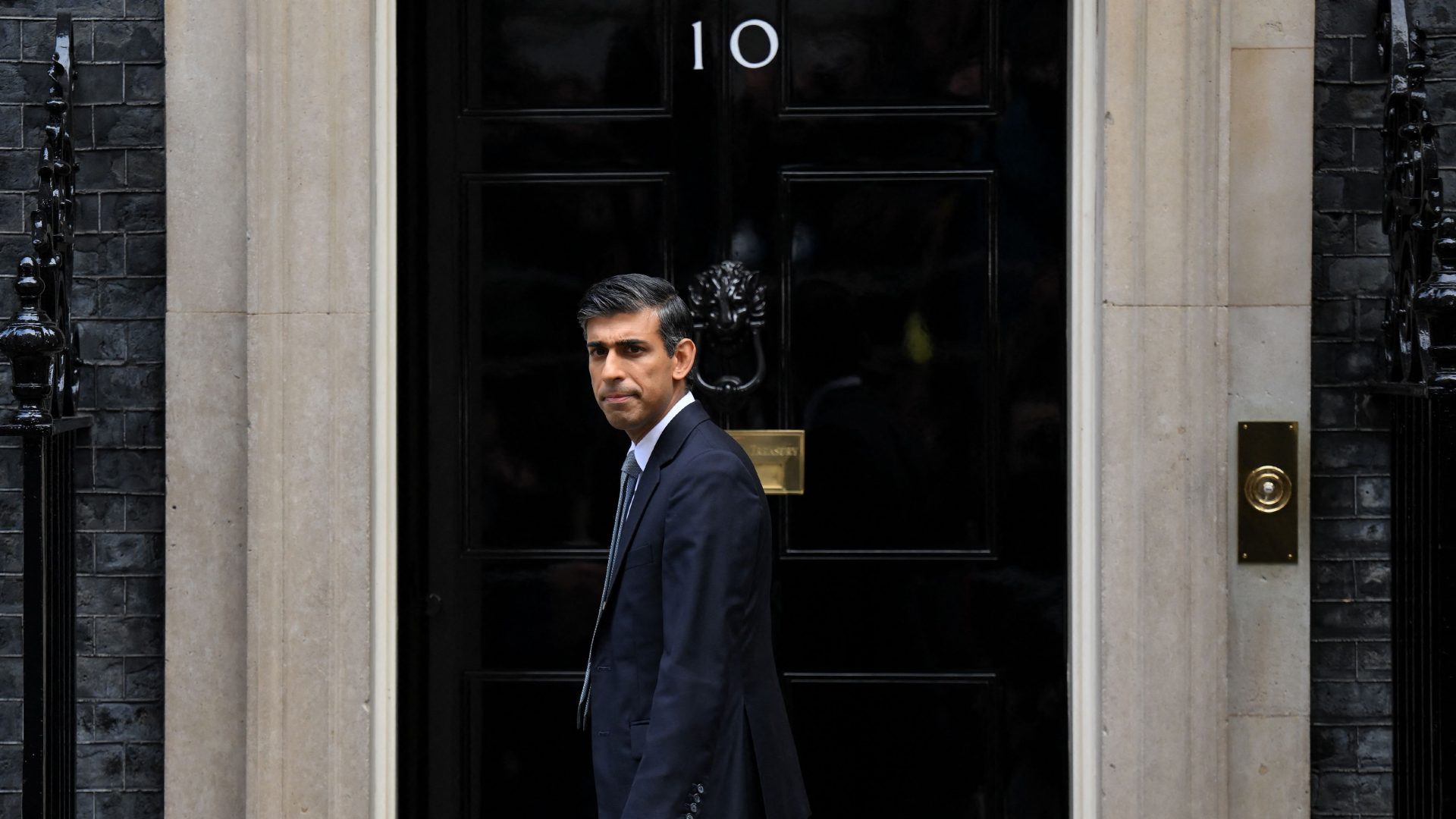Rishi Sunak had some good news to wake up to, for once, thanks to the newspaper once thought of as the house journal of the Conservative Party.
Sadly for him, the news is only good in relative terms – as the Telegraph has a huge front page splash warning that the Tories are heading for a 1997-style wipeout, with the party on track to retain just 169 of its 349 MPs. Eleven current cabinet ministers could lose their seats.
The findings are the results of the Telegraph’s analysis of an MRP model produced by YouGov, based on a huge survey of 14,000 respondents, and they have raised some eyebrows – not because of how devastating they appear to be for the Conservatives, but how positive they are versus most current polling.
The results suggest Labour will lead the Tories by only around four points in England and Wales, and will attract less than 40% of the electorate. The model also seems favourable to the Lib Dems (suggesting they’d have 48 seats), while the Telegraph analysis suggests that should the Tories make a deal with the Reform party, their voters will return “home” to the Conservatives.
That assumption does not tally with actual polling of Reform voters, most of whom say they’ll likely stay home if there is no Reform candidate in their constituency – but methodological quibbles aside, there is no doubting that many in the Tory party would seize these results in a heartbeat if they could.
The reality is that retaining 169 seats looks like a best-case scenario for the Conservative party. They have, after all, bounced back from a result that bad before in recent history (165 seats in 1997) and have, as of this year, spent more of the 27 years since that result in government than in opposition.
Most polling companies predict that if an election were held tomorrow, the Conservatives would struggle to get 169 seats. Given how bad the polls are, some suggest that it’s only logical Rishi Sunak wants to wait until the autumn before calling an election – but wiser heads in his party do not share that logic.
There is very little reason to suspect that things will get better for the Conservatives this year. They had hoped that falling inflation would lead to interest rate cuts, but that is in doubt now that the Houthis are threatening major shipping routes in the Red Sea. The disruption to global trade will add costs, and so boost inflation. Even if base interest rates were cut, the benefit wouldn’t come through to homeowners until their mortgage terms expired – probably long after the election.
Otherwise, there is a substantial risk that the UK will enter a recession this summer, and an autumn election means that voting comes after a summer of coverage of small boat crossings – which will, of course, not be “stopped” even if the government passes its Rwanda plan.
As bets go, the odds are overwhelmingly in favour of an autumn election giving a worse result for the Conservative party than a spring election. Those with clear eyes and an interest in the long-term survival of the Tory party should push for a spring election. It is clear that some within CCHQ and Number 10 have been agitating for just this.
Their problem is that, like his predecessor-but-one Boris Johnson, Rishi Sunak doesn’t actually care what happens to the Conservative party after he’s gone – absolutely no-one expects him to stay in the Commons for a minute longer than his premiership lasts, and most people expect him to quit the UK too.
Sunak’s interests don’t align with those of his MPs or his party. If he drags things out to autumn, he gets to be prime minister for longer – hitting the symbolic two years as PM if he calls the election for November. So what if that costs the party 40, 50 or more extra seats?
The incentives of the Conservative party as an institution and those of the man at its helm do not align. The Telegraph poll should be a sign to CCHQ that it is better going sooner than later, especially if they believe it.
The challenge for the party is that Sunak doesn’t care what they want. In that, at least, they might have something in common with the British public, for once.











